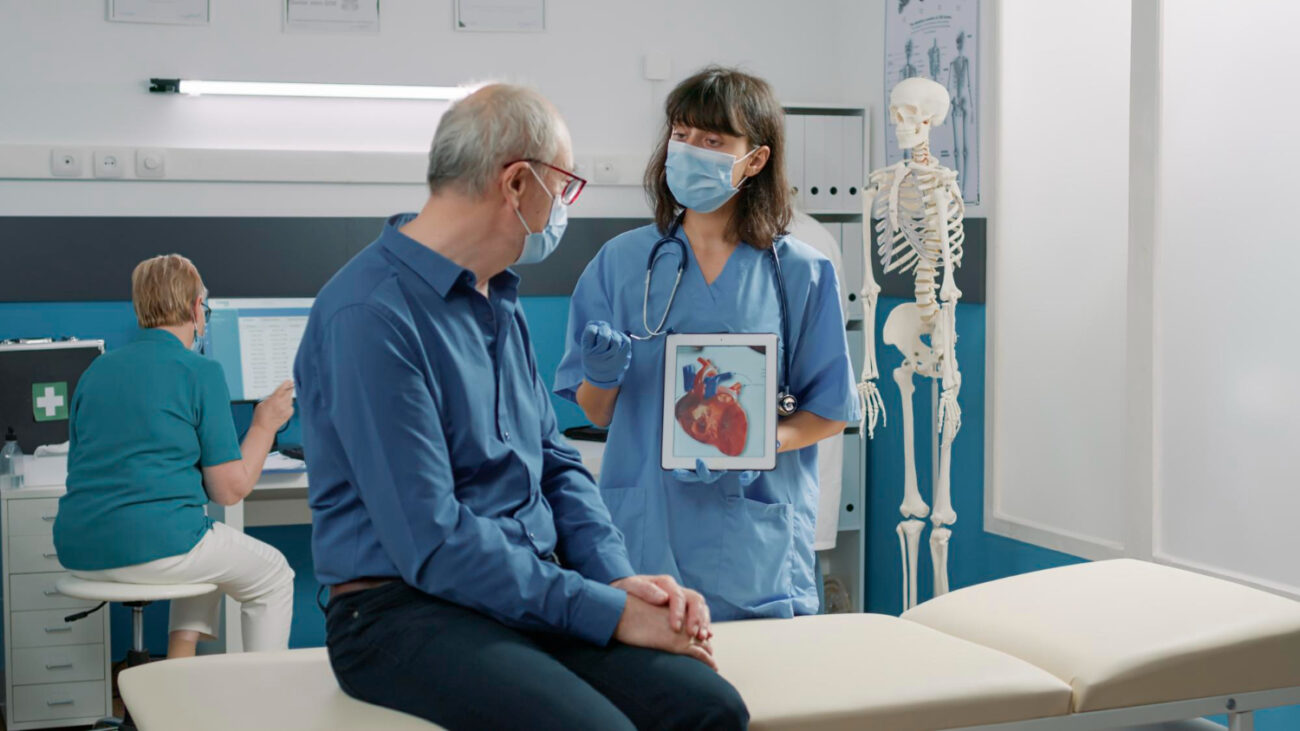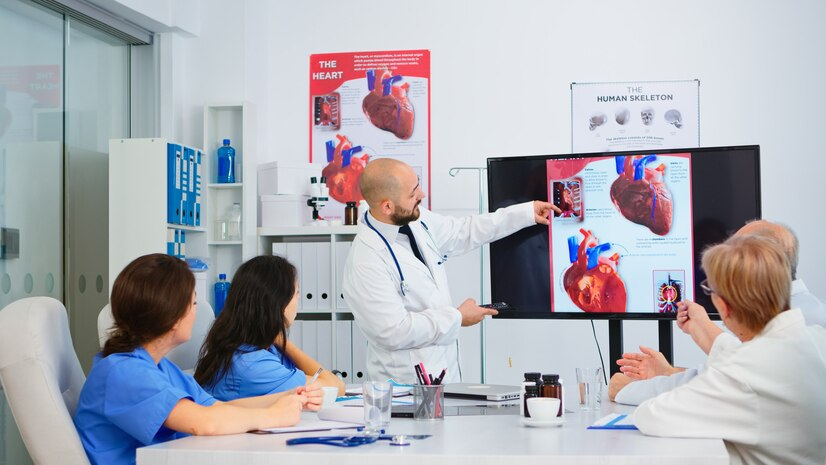Are you curious about working in cardiology healthcare but unsure where to start? Becoming a cardiology medical assistant might be the perfect path for you!
Such medical assistants do a lot of different jobs, from handling paperwork and preparing medical equipment to assisting in surgeries and educating patients about their health.
Cardiology medical assistants work closely with cardiologists to help diagnose and treat heart problems. They handle everything from taking patient tests to making sure the doctor has everything they need for a procedure.
Today, here, in this blog post, we will delve deep into what cardiology medical assistants do, where they work, how much they earn, and how you can start your journey in this rewarding field.
So, read on to find out if this could be an exciting job opportunity for you!
What is a Cardiology Medical Assistant?
CMAs work closely with cardiologists to ensure patients receive comprehensive heart care. They often work with long-term patients, maintaining strong relationships over time.
These assistants are essential in various departments, handling tasks like verifying records, preparing materials, performing specialized tests, and assisting in surgeries. Their role extends to educating families, sterilizing rooms, monitoring intensive care units, and ensuring smooth patient transport.
Leading institutions provide extensive training to develop their patient-centered approach, adherence to standards, attention to detail, and communication skills. This adaptiveness and commitment help optimize patient outcomes in cardiovascular medicine.

Cardiology Medical Assistant Jobs Descriptions
Cardiology medical assistant job is to support cardiologists and patients by handling a variety of tasks that streamline the medical process.
The role demands expertise in cardiovascular procedures, familiarity with specialized equipment, and knowledge of patient safety best practices. Cardiology medical assistants play a crucial role, allowing cardiologists to focus on complex procedures by:
- Preparing procedure rooms, sanitizing equipment, and stocking supplies
- Assisting the cardiology team with gowning and gloving before procedures
- Coordinating and processing necessary documentation, such as consent forms. For more details on the Clinical documentation process, go through our previous blog on What is Clinical Documentation Integrity?.
- Facilitating communication between families and cardiologists
- Assisting during procedures by passing instruments, applying dressings, and monitoring patients
- Maintaining sterile fields throughout procedures
- Preparing specimens and diagnostic tests for transport after procedures
| Responsibility | Details |
|---|
| Preparing Procedure Rooms | Sanitizing equipment and stocking supplies |
| Assisting with Procedure Preparation | Helping with gowning, gloving, and documentation |
| Coordinating Documentation | Handling consent forms and processing necessary paperwork |
| Facilitating Communication | Acting as a liaison between families and cardiologists |
| Assisting During Procedures | Passing instruments, applying dressings, and monitoring patients |
| Maintaining Sterile Fields | Ensuring a sterile environment during procedures |
| Preparing Specimens and Diagnostic Tests | For transport after procedures |

Skills Required to Be a Cardiology Medical Assistant
Along with general medical assisting skills, cardiology medical assistants may need to develop specialized skills, including:
- EKG Certification: Cardiology medical assistants need to know how to place leads for an EKG recording, which may require a special certification course.
- Medical Terminology: Understanding basic medical terminology is essential for effective communication with the healthcare team.
- Organization: Excellent organizational skills are necessary for documenting vital signs, handling billing, and keeping supplies stocked.
- Customer Service: As the first and last point of contact for patients, medical assistants must ensure patients feel welcome and cared for during their visits.
- Manual Dexterity: Handling small medical instruments and assisting with bedside procedures requires good hand-eye coordination and manual dexterity.
- Computer Skills: Accurate documentation is crucial in medical care, so understanding computer systems is important to prevent the loss of critical information.
- Attention to Detail: Recognizing subtle changes in a patient’s condition and knowing when to report them is vital, as changes in color or vital signs can indicate the need for urgent care.

What is the Medical Assistant Cardiology Salary?
Cardiology medical assistants play a crucial role in providing administrative and clinical support to the cardiologists. Their salary is widely dependent on various factors like experience, location, skills, certification and specific duties.
Their average salary in the U.S. is about $42,000 annually or $20.19 per hour. They typically start earning $18 to $20 per hour. This can fluctuate significantly based on geographical location.
The Bureau of Labor Statistics projects a 14% growth in medical assistant for cardiologists job opportunities from 2022 to 2032.
According to Salary.com, cardiology medical assistants earn between $32,221 and $37,739 annually. This is considered as one of the higher-paying medical assistant specialties.
| Salary Data | Details |
|---|---|
| Average Annual Salary | $42,000 |
| Average Hourly Wage | $20.19 |
| Starting Hourly Wage | $18 to $20 |
| Annual Salary Range | $32,221 to $37,739 |
| Job Growth Projection | 14% growth from 2022 to 2032 |

How to Become a Cardiology Medical Assistant?
Cardiology medical assistants are crucial in cardiac catheterization labs and other cardiology settings, assisting cardiologists before, during, and after invasive cardiovascular procedures. If you’re interested in becoming a cardiology medical assistant, follow these essential steps to enter this specialized field:
- Obtain Your High School Diploma or GED: This is the foundational requirement before you can pursue further education or certification.
- Decide on Certification: While not legally required, most employers prefer certified medical assistants. You can opt for a certification program or even pursue an associate degree in medical assisting.
- Get Necessary Training and Education: Enroll in a college, technical school, or online program, which can take anywhere from 4 months to two years. Programs like Stepful offer a 4-month online course with an in-person externship.
- Obtain Additional Certifications: Since cardiology is specialized, consider completing an EKG course and getting certified in phlebotomy. An extra medical billing course could also be beneficial.
- Apply for Jobs: Use job search sites like Indeed and Monster to find opportunities. You can also directly contact or visit clinics and offices you are interested in working for.
- Start Your Career: After completing the above steps, you are ready to begin working as a cardiology medical assistant.
The Bottom Line
A Cardiology Medical Assistant plays a vital role in heart care, supporting cardiologists with a range of tasks from patient preparation to post-procedure care. Strong organizational skills, attention to detail, and medical knowledge are essential.
While the role can be demanding, the impact on patient lives is immensely rewarding. Tools like RevMaxx AI Medical Scribe can significantly streamline administrative tasks, allowing medical assistants to focus on patient interaction and care. By combining human compassion with technological efficiency, medical assistants can contribute meaningfully to the healthcare team.
RevMaxx can now streamline your cardiology medical practices with accuracy. Would you like to get a live demo? Let’s get started.










